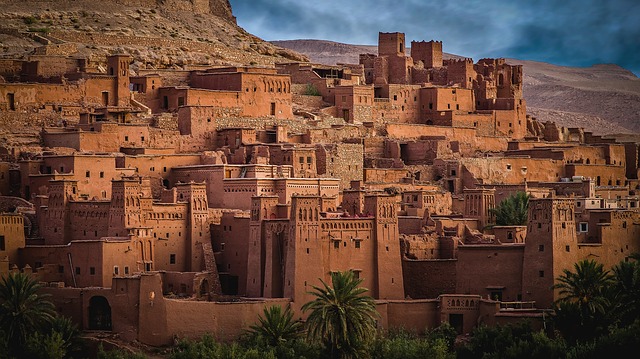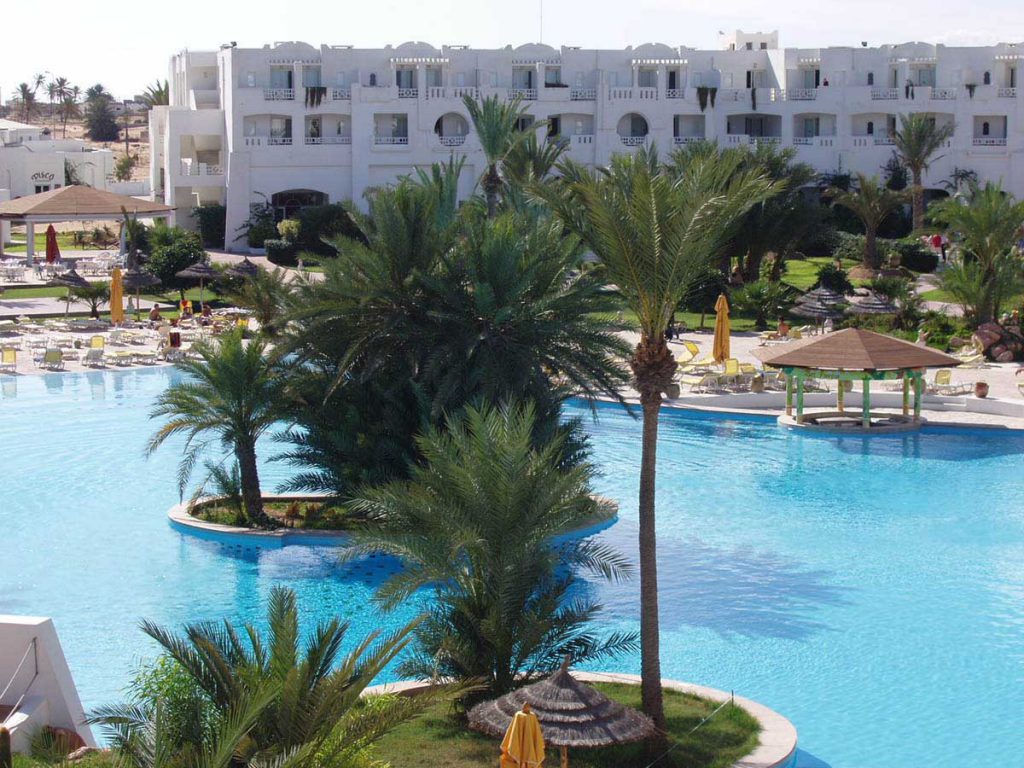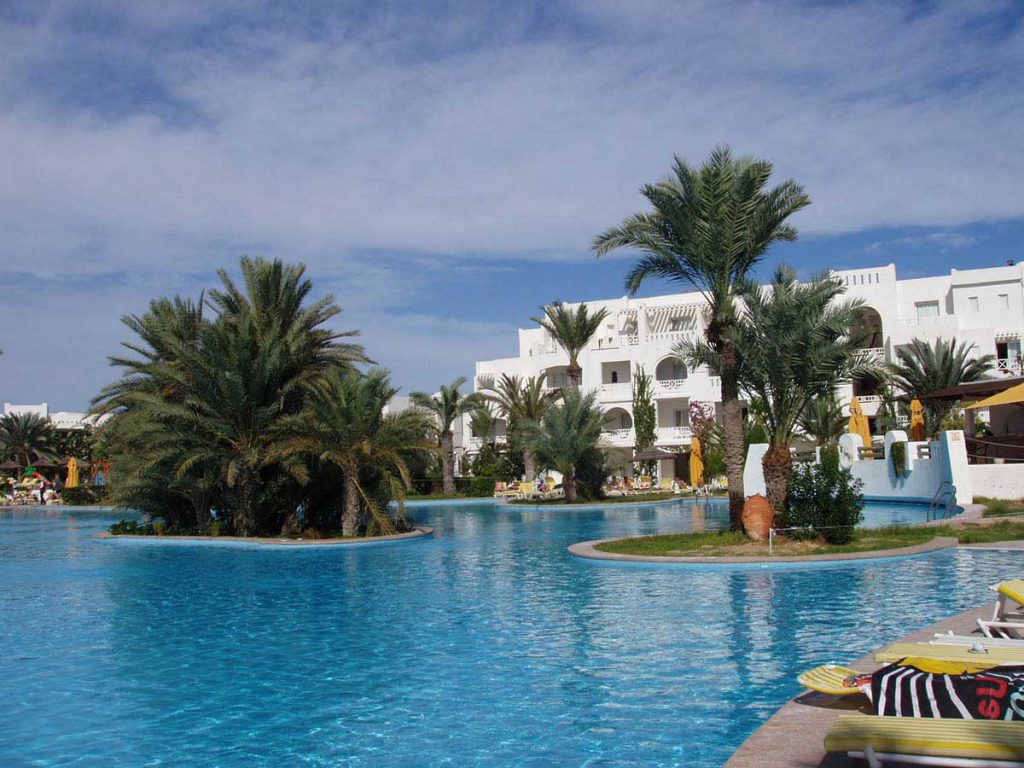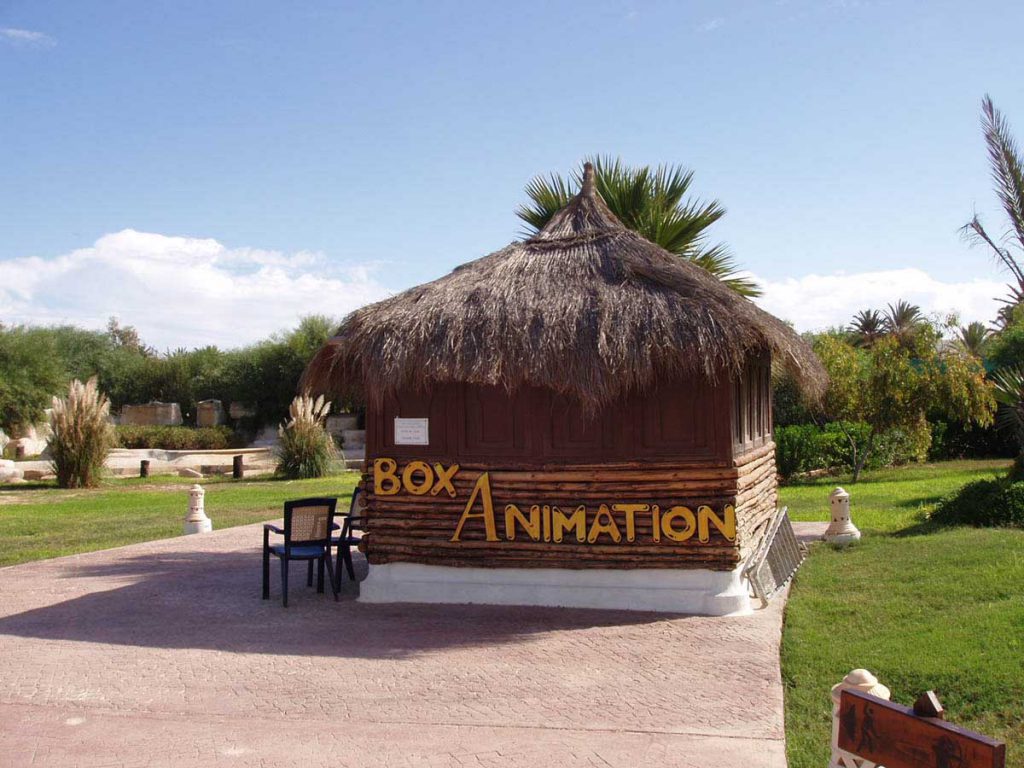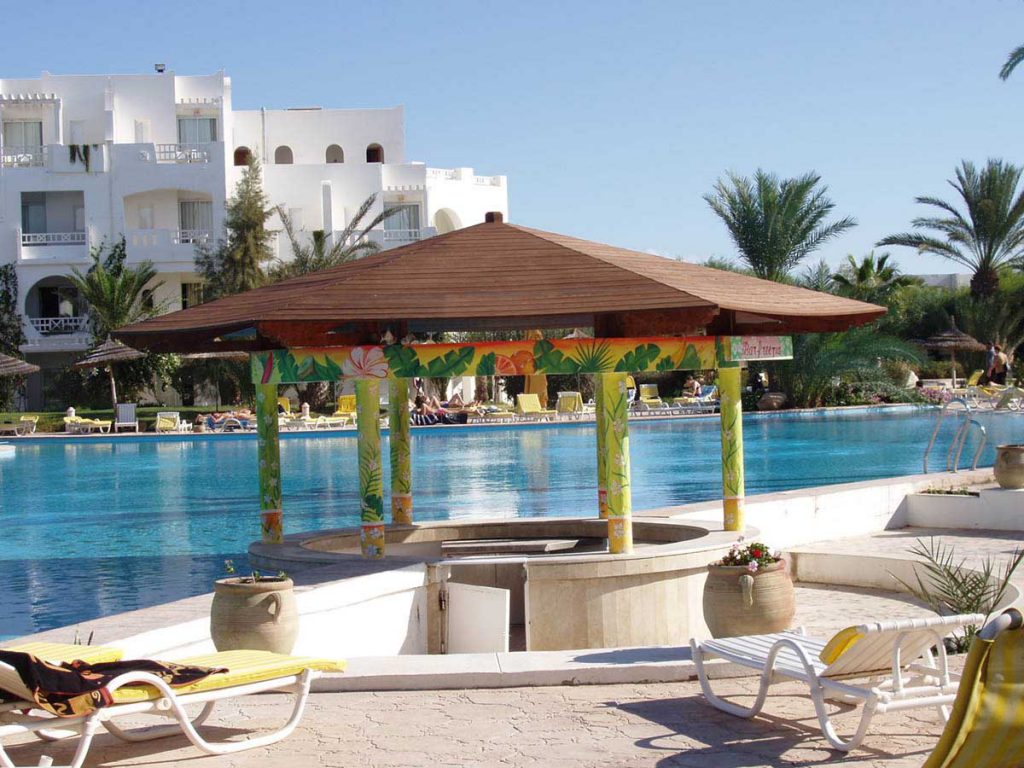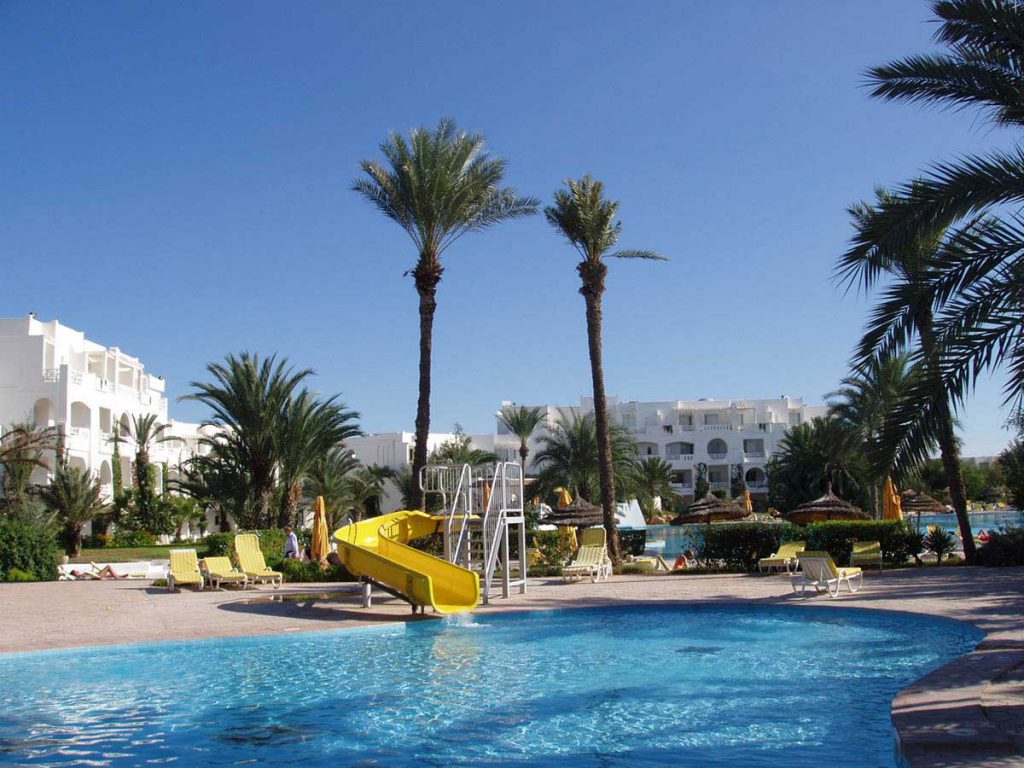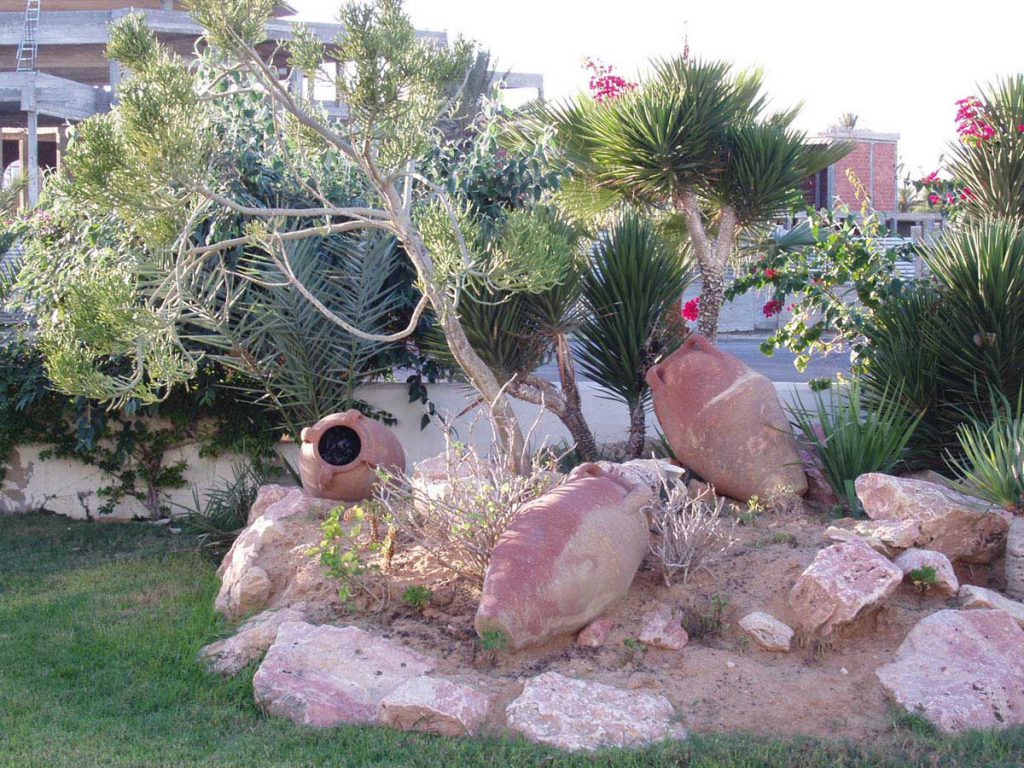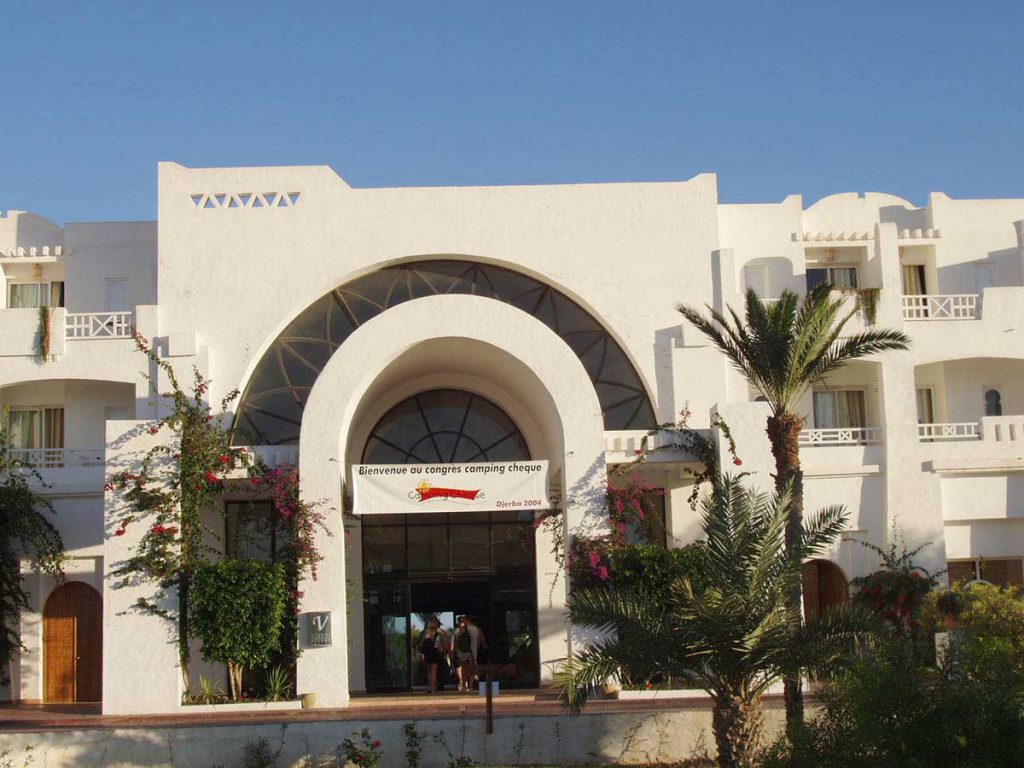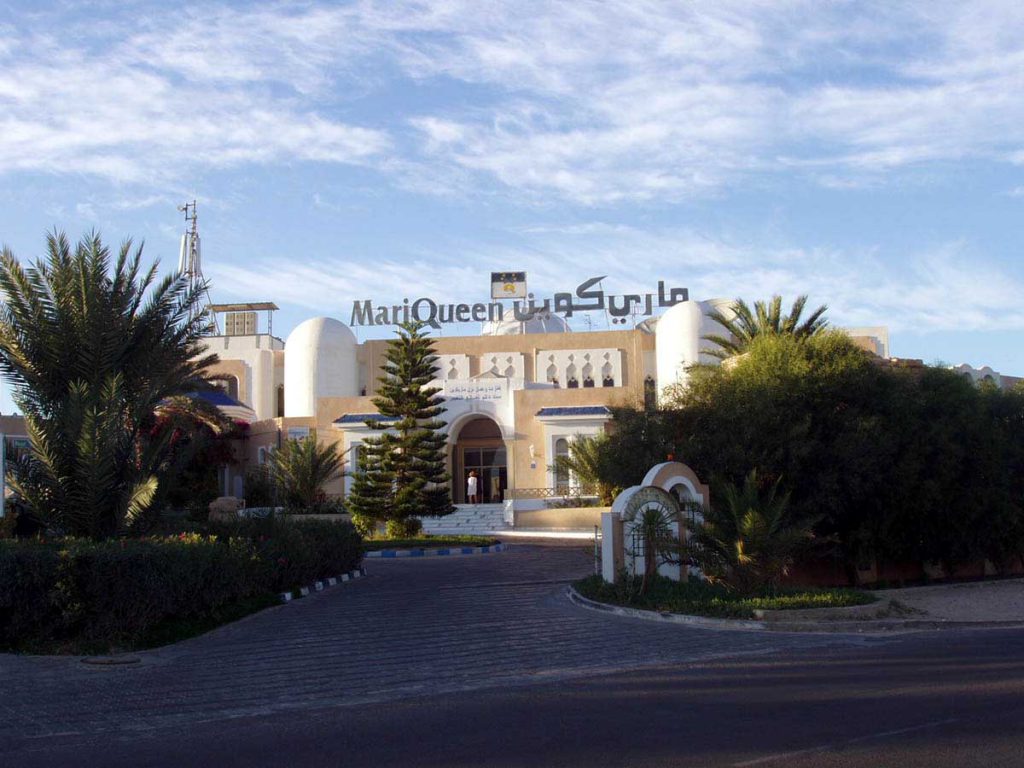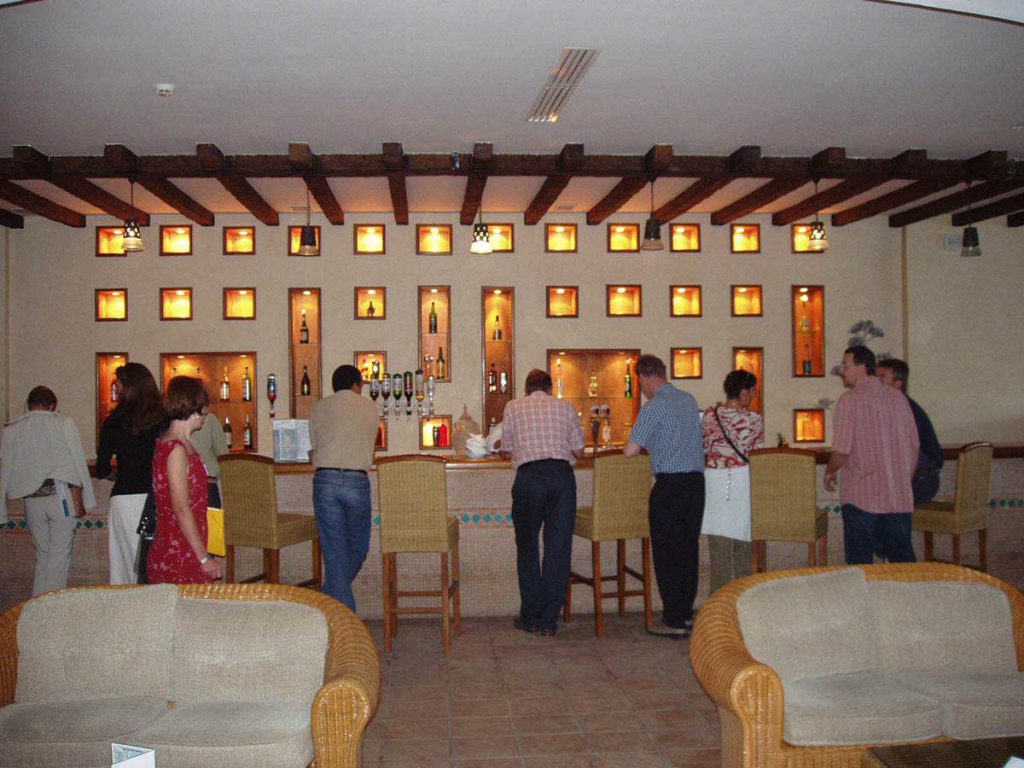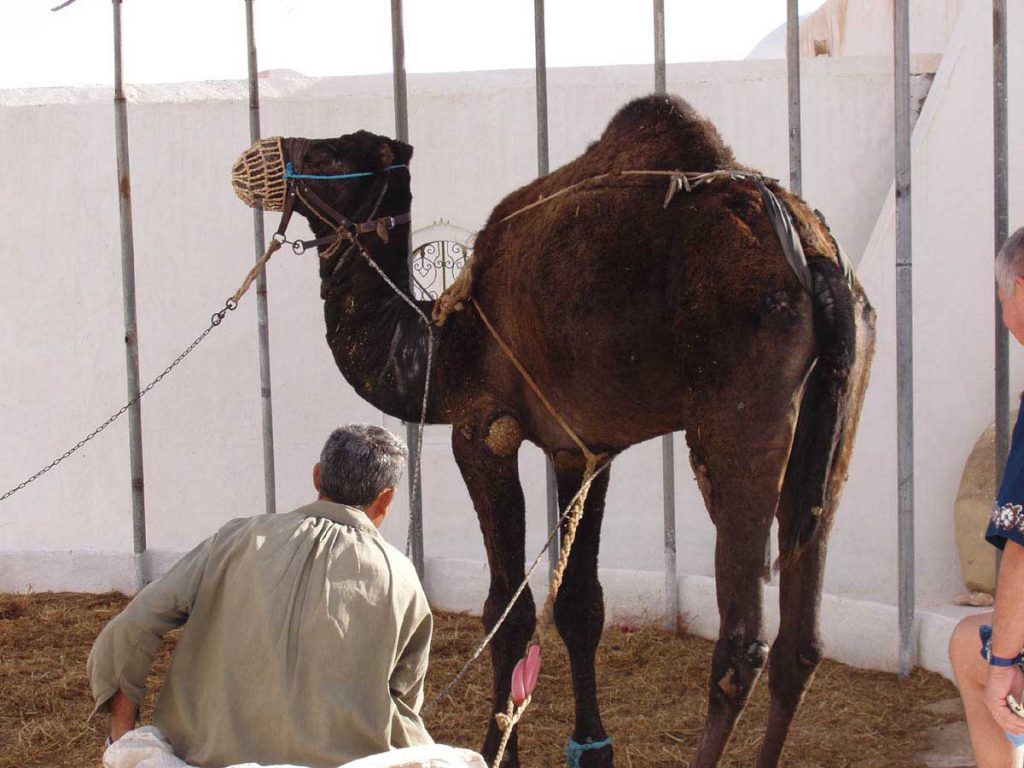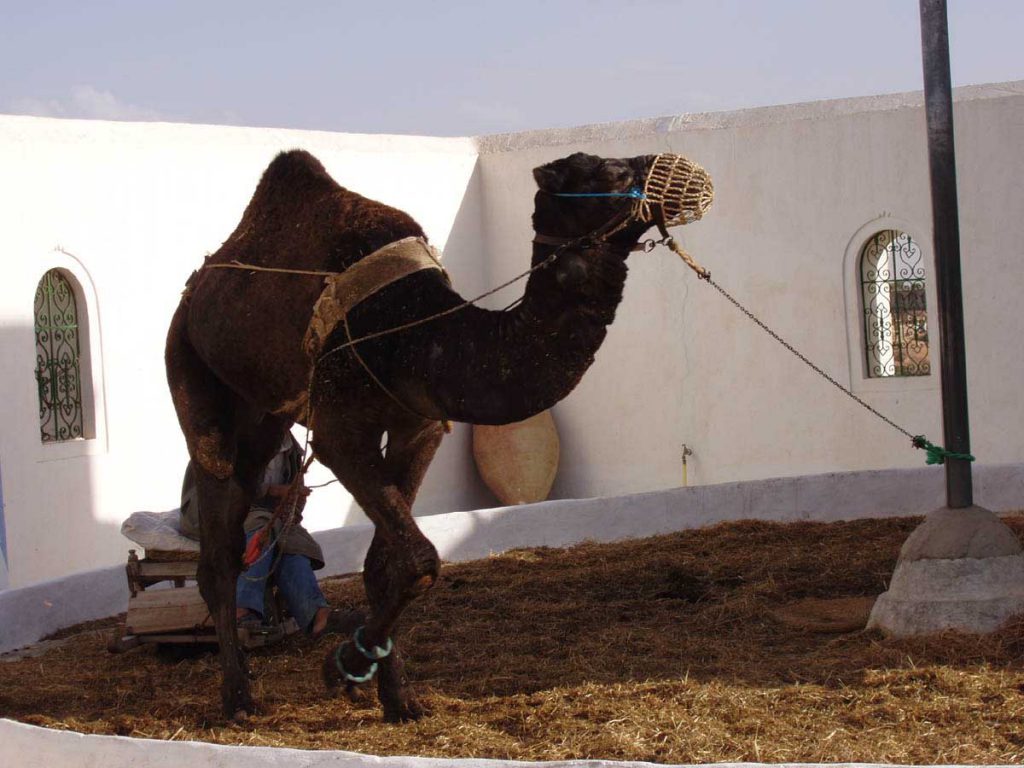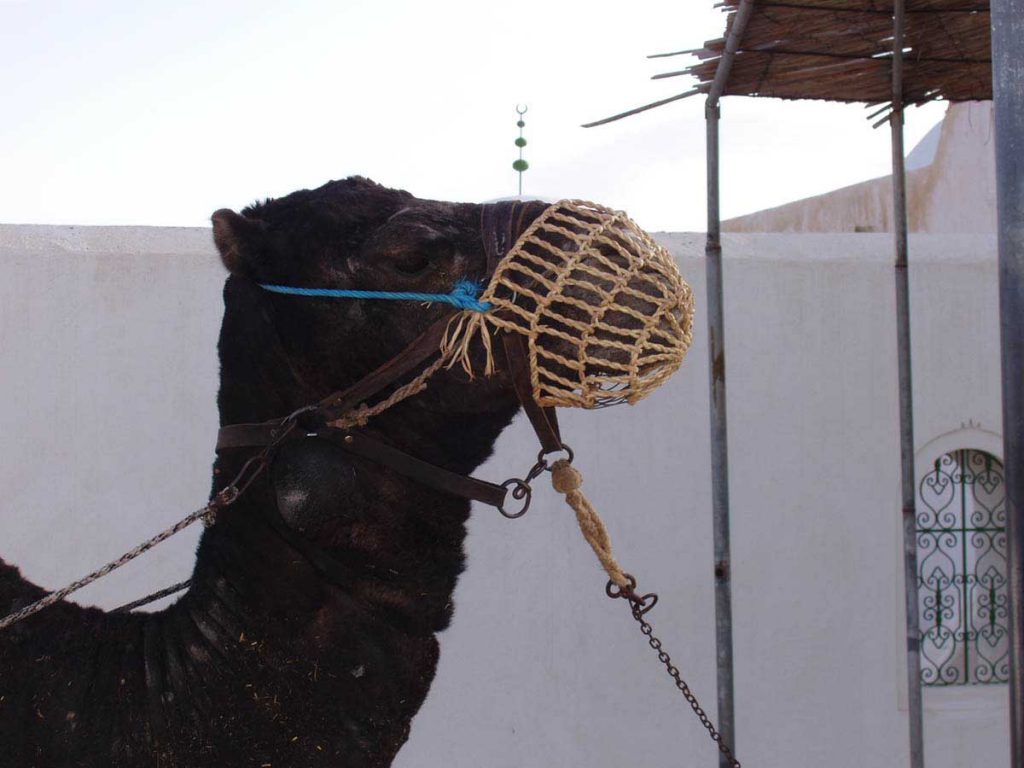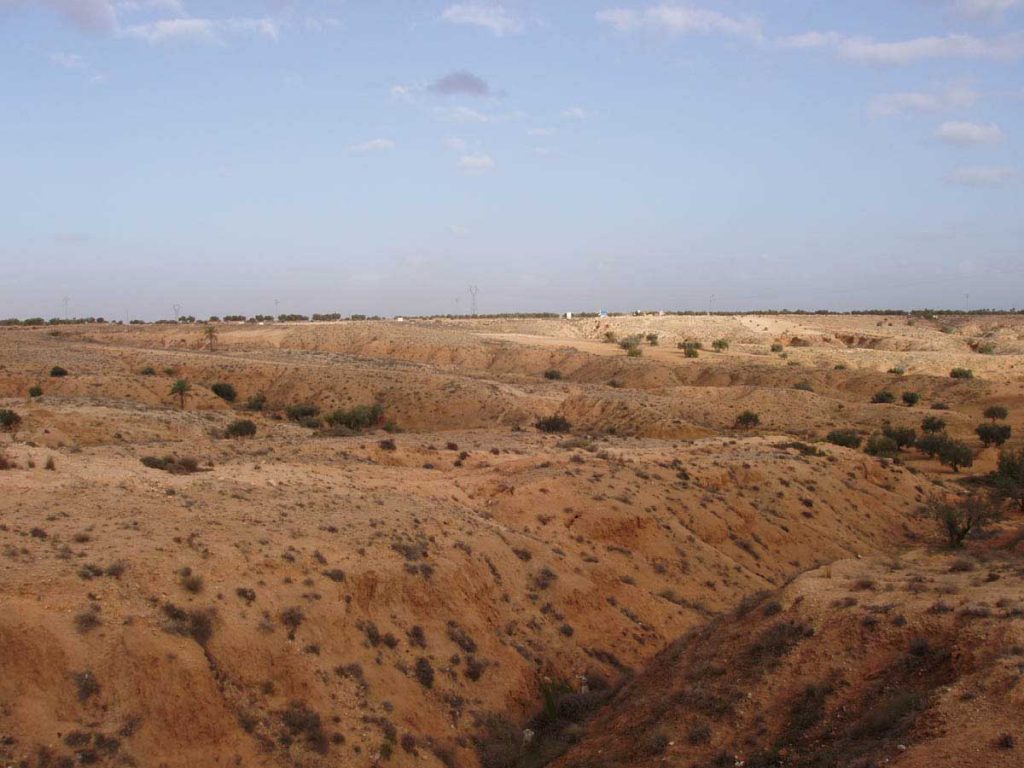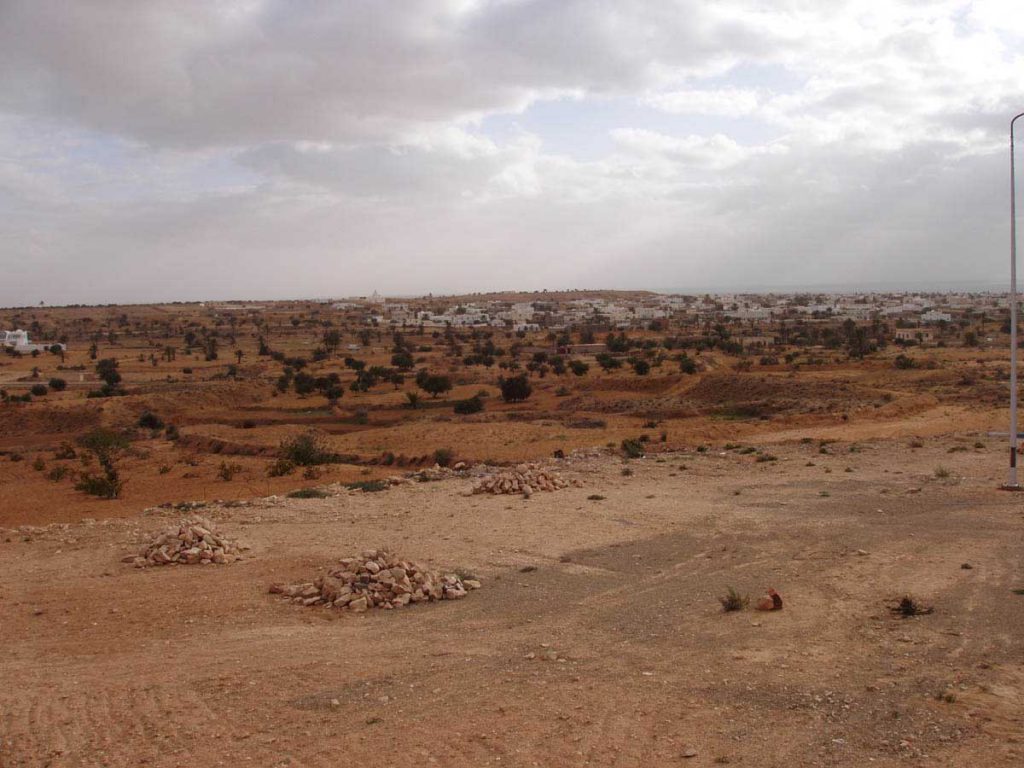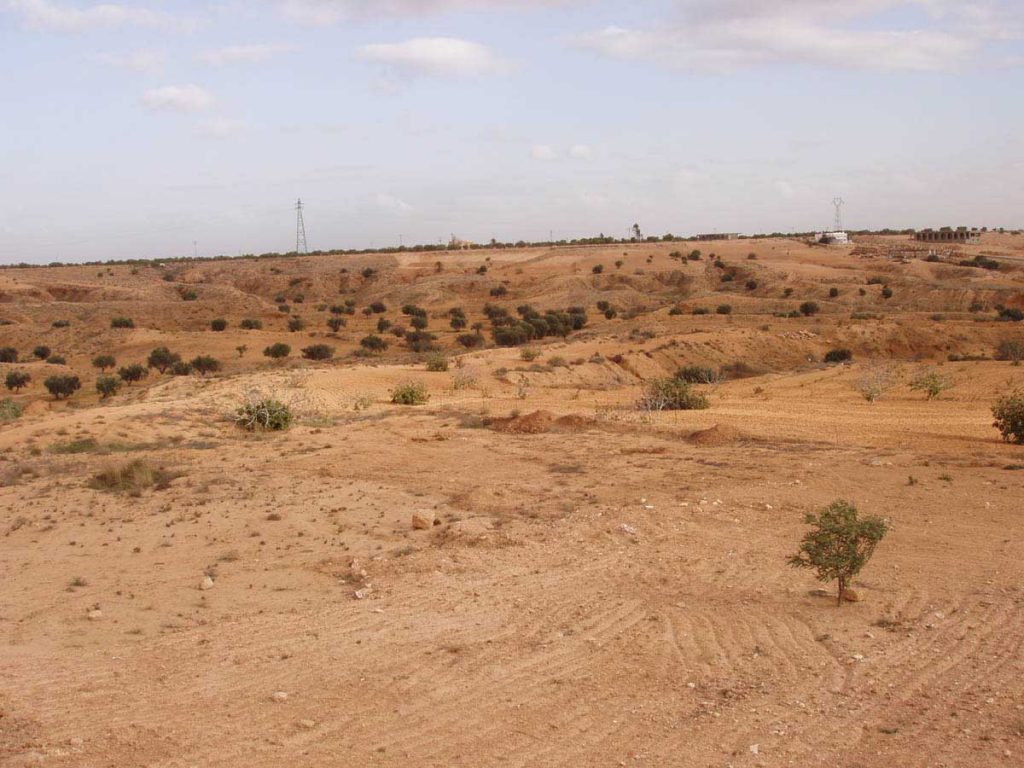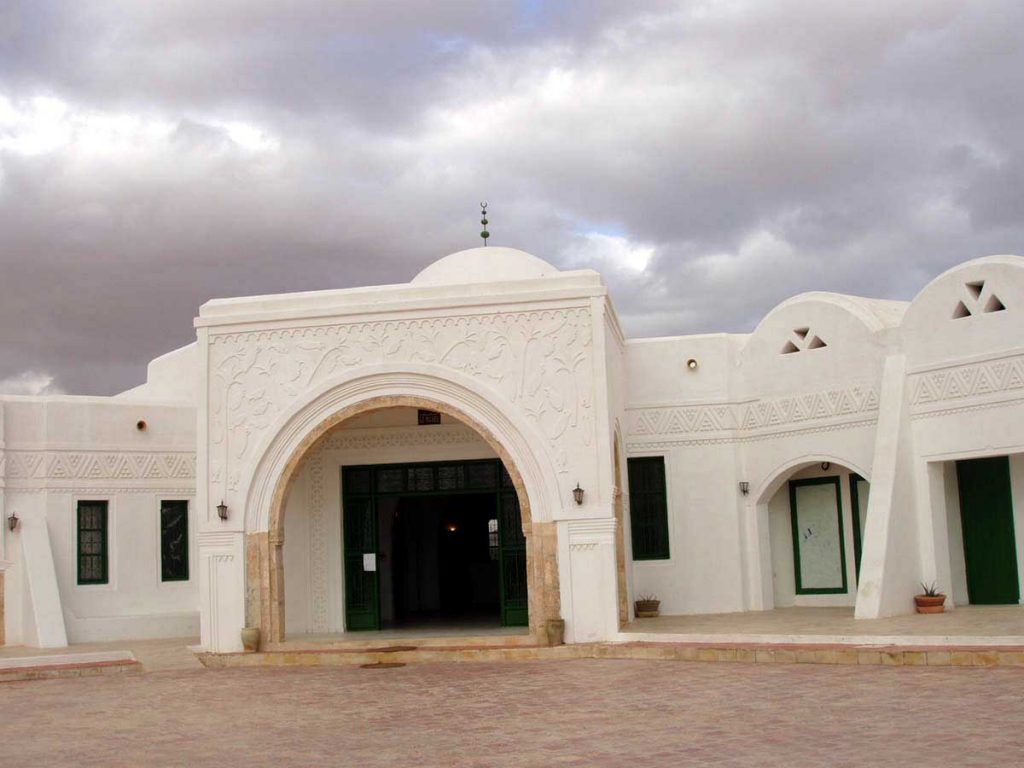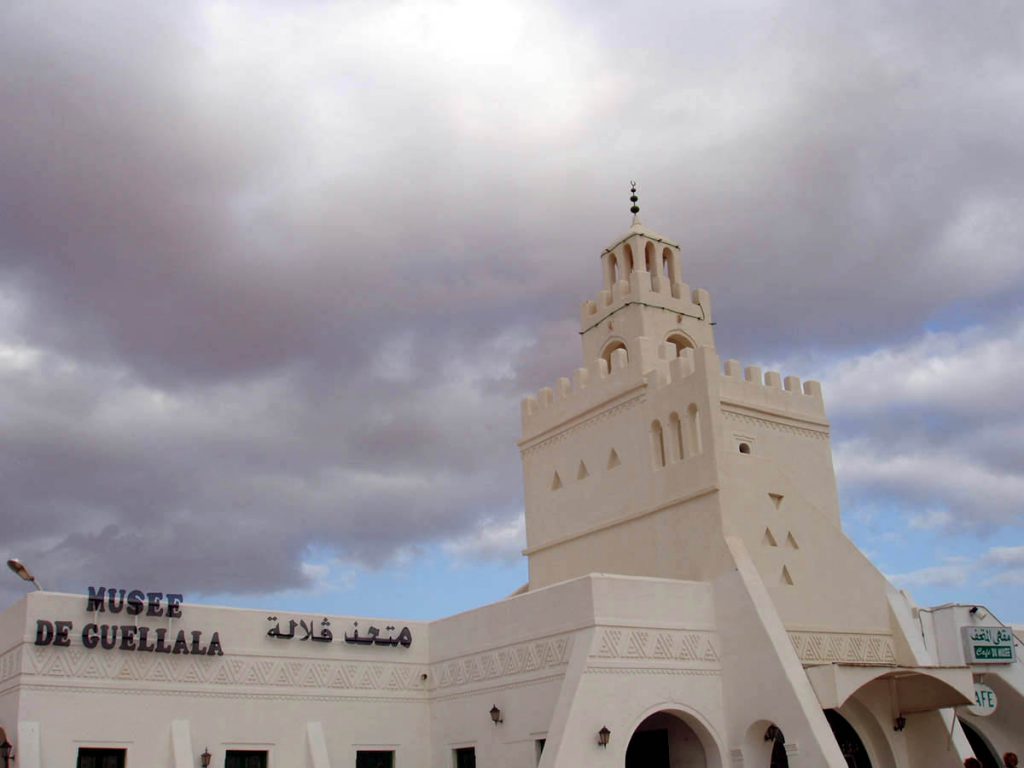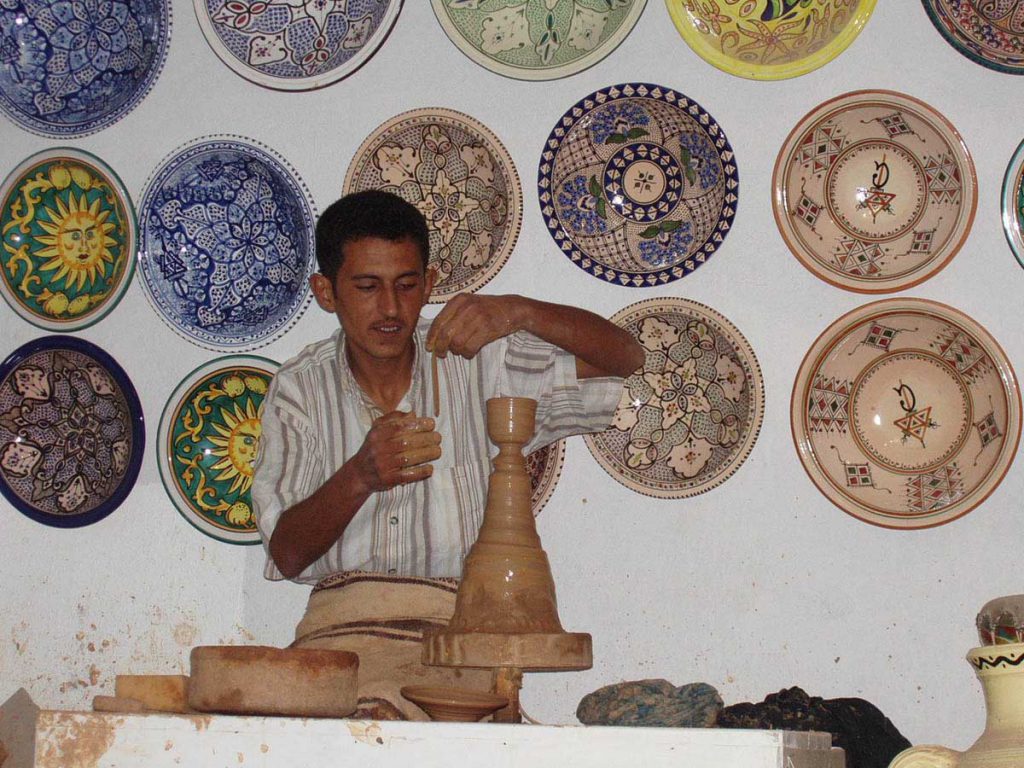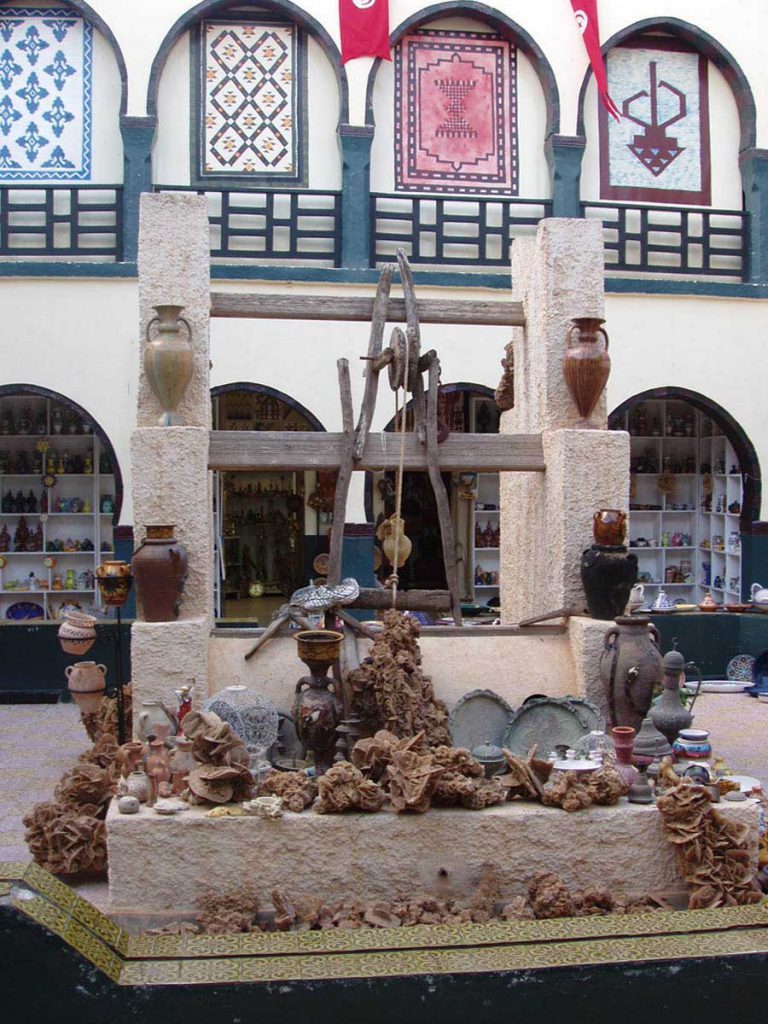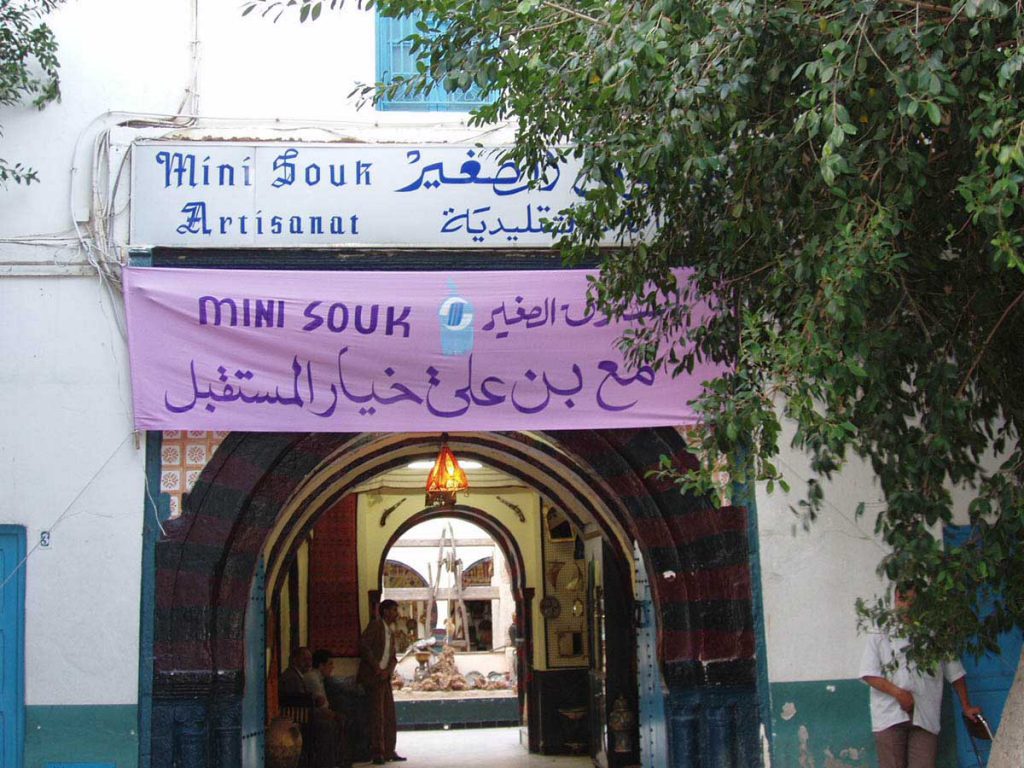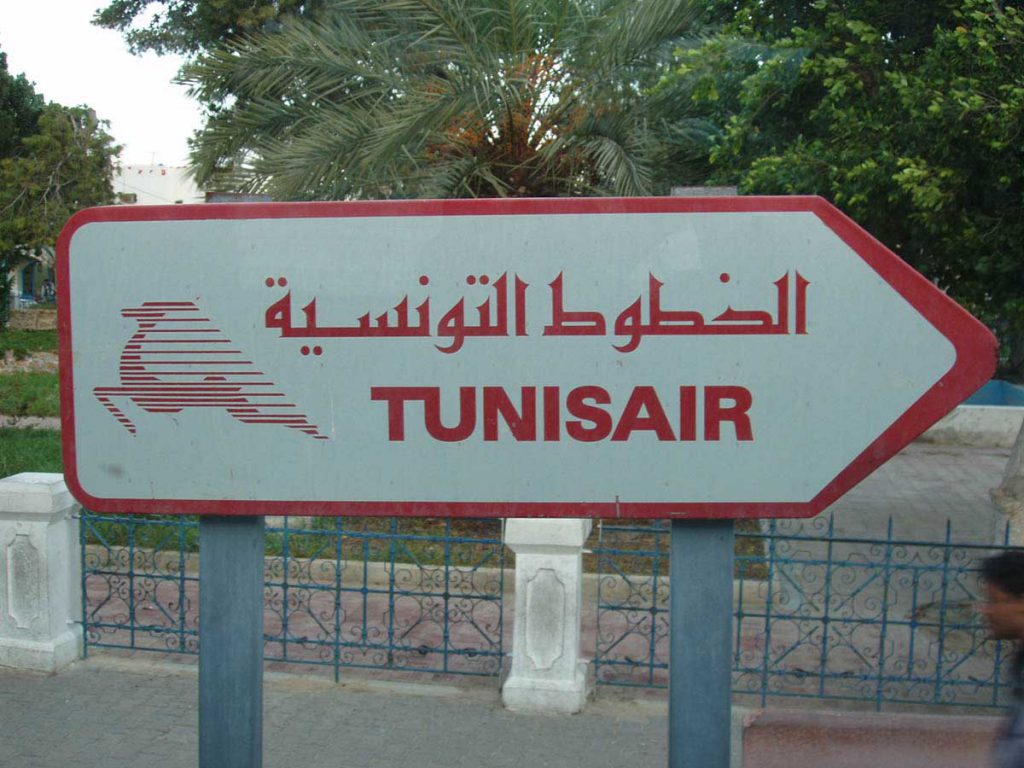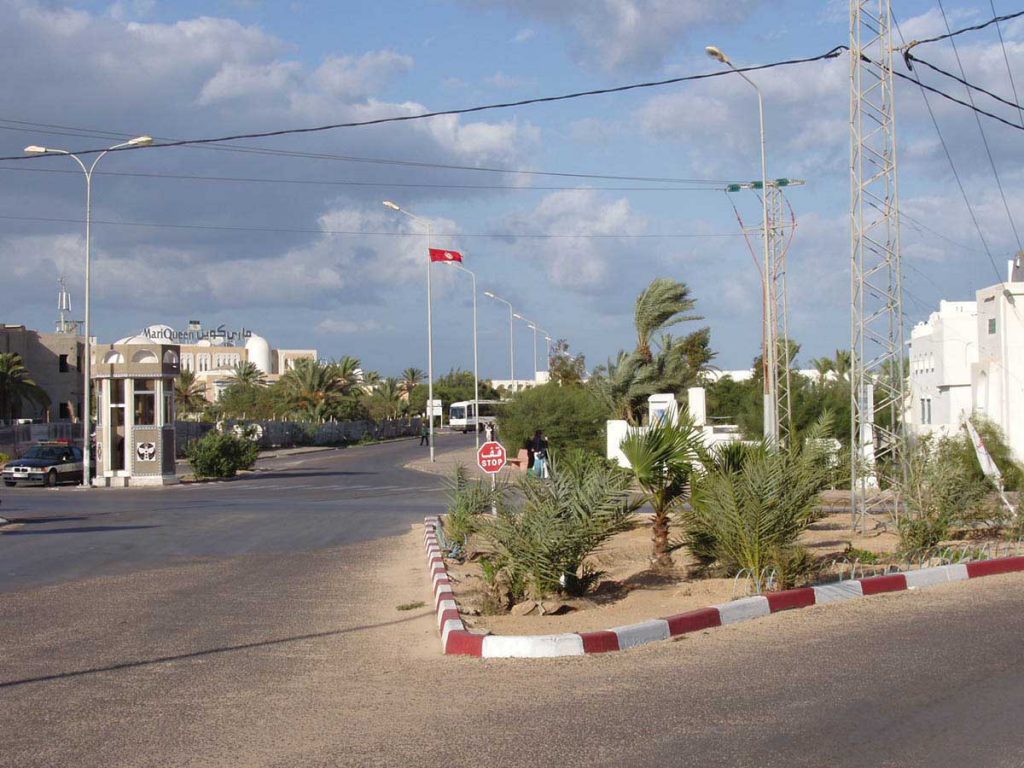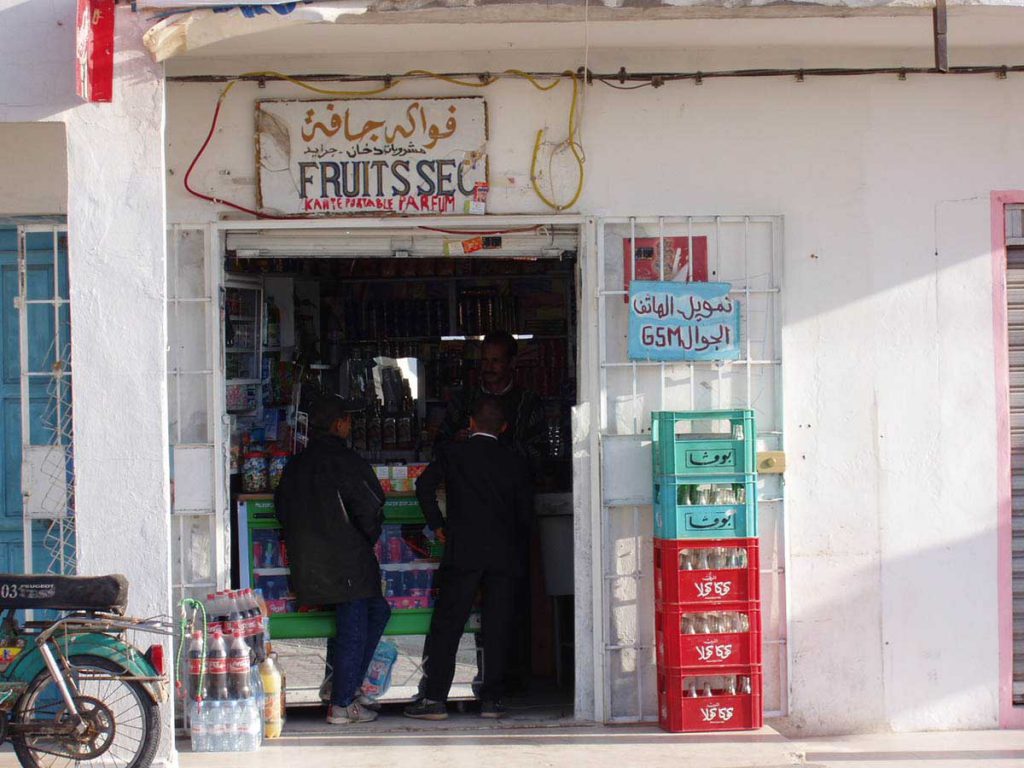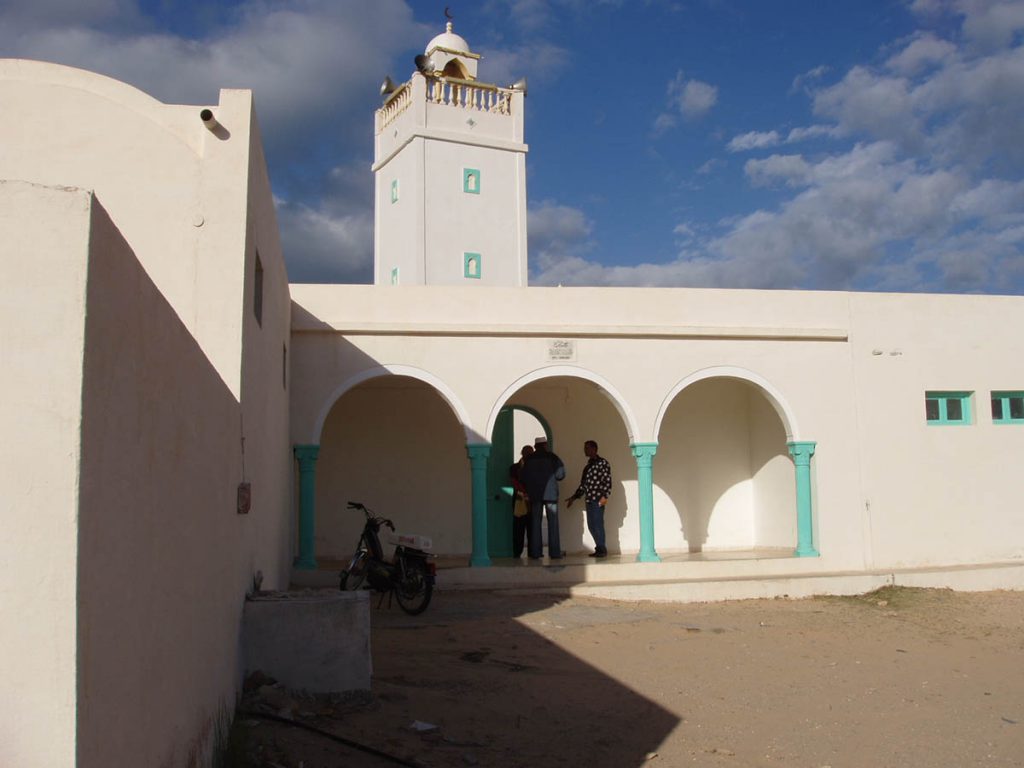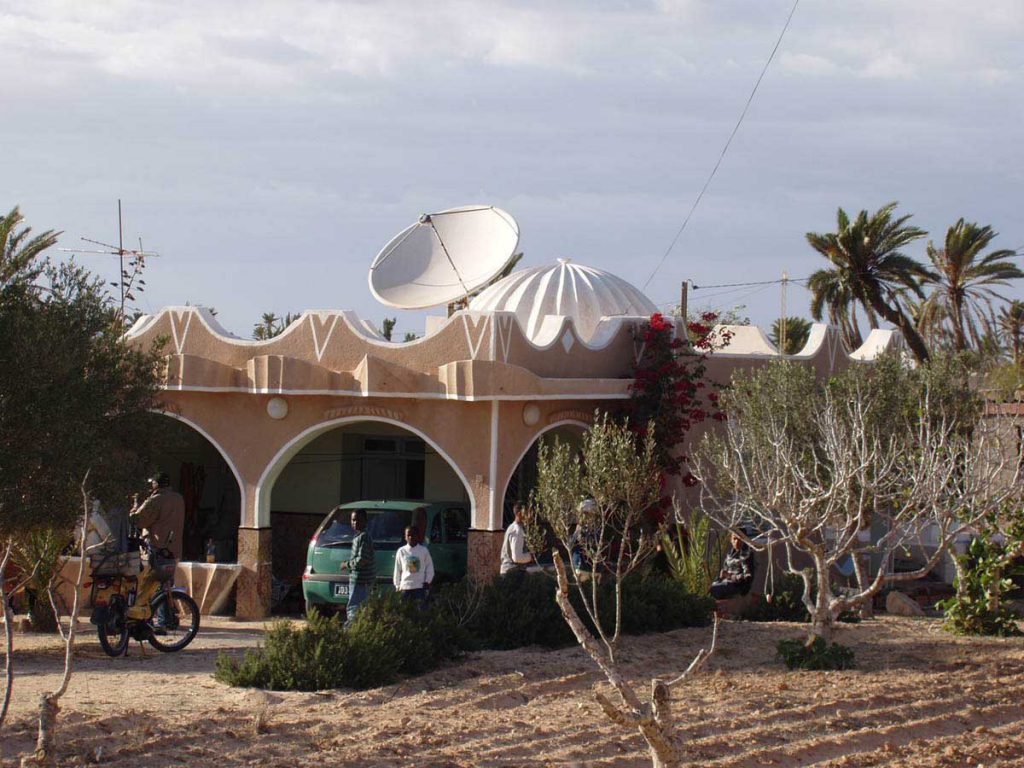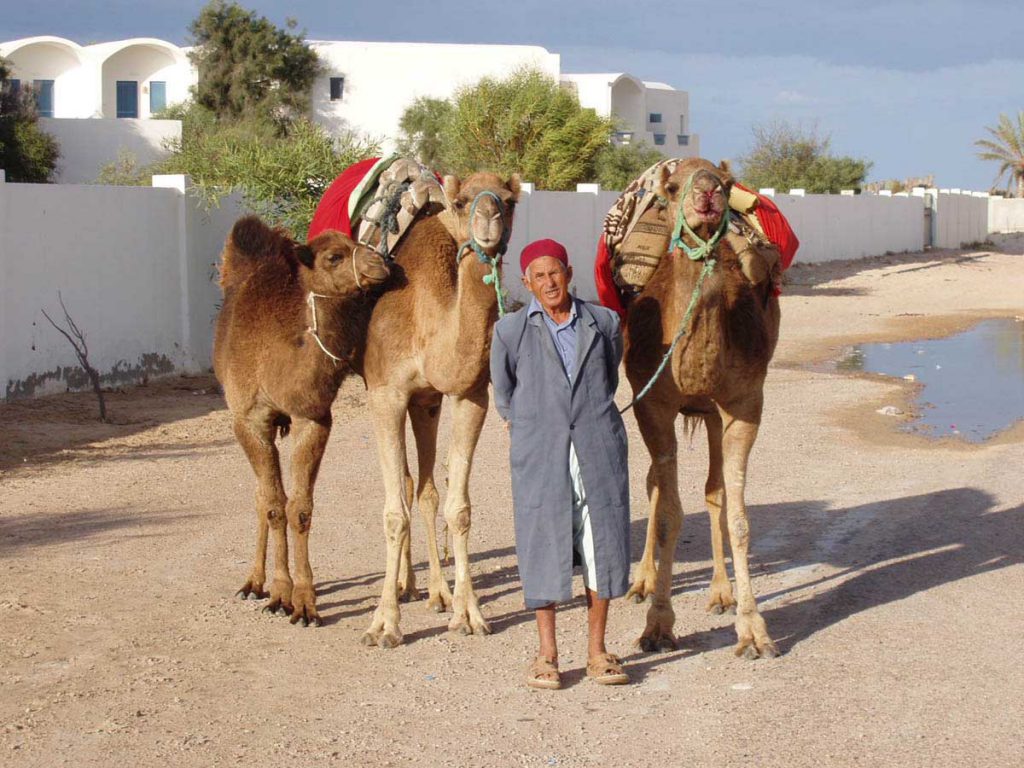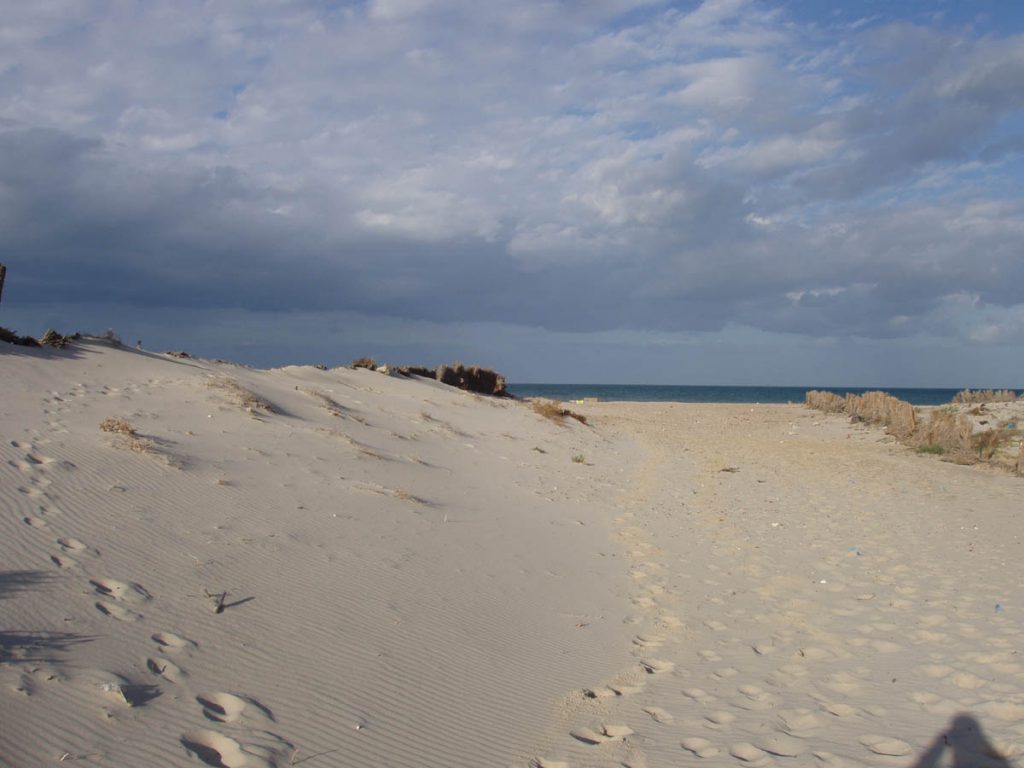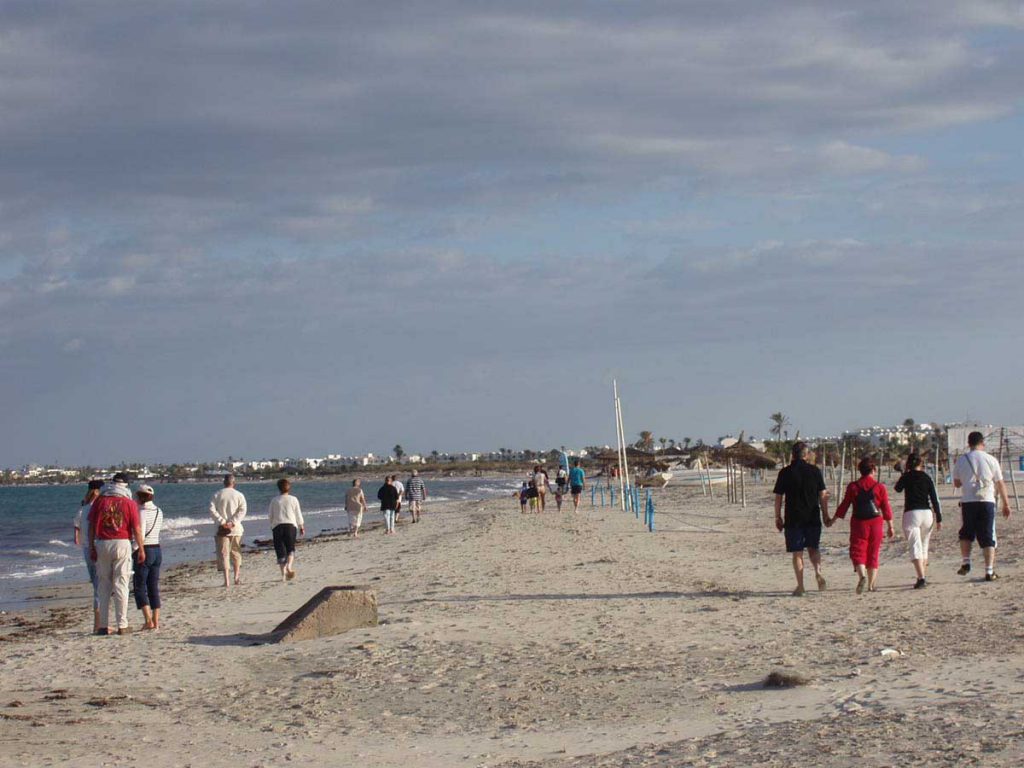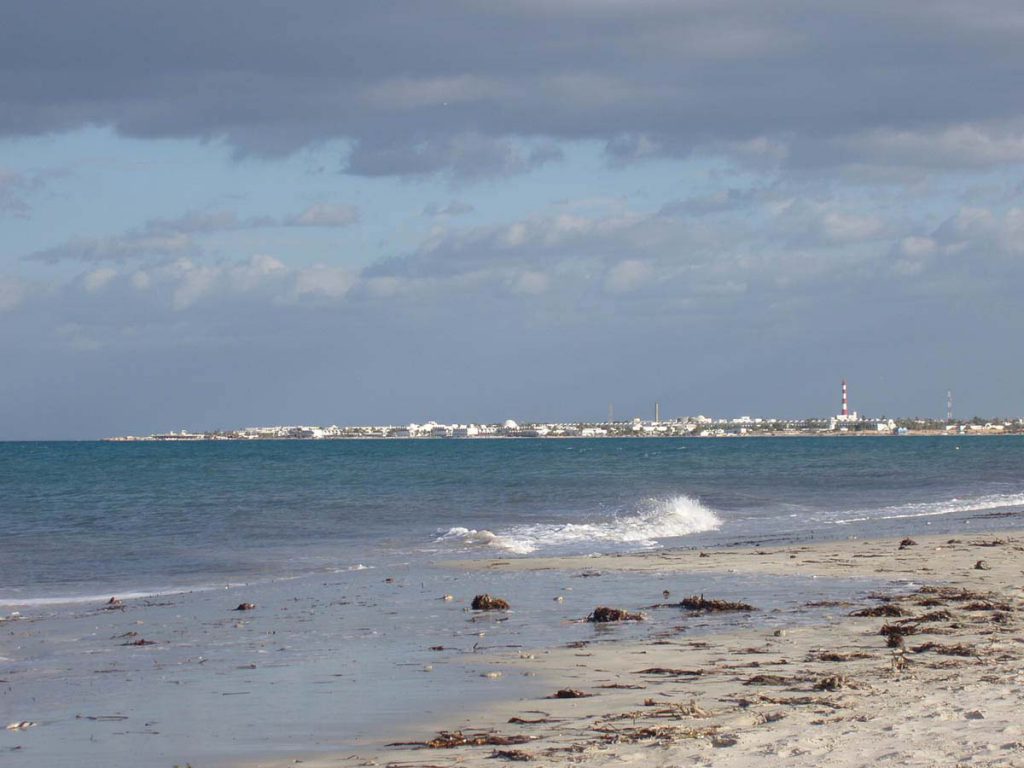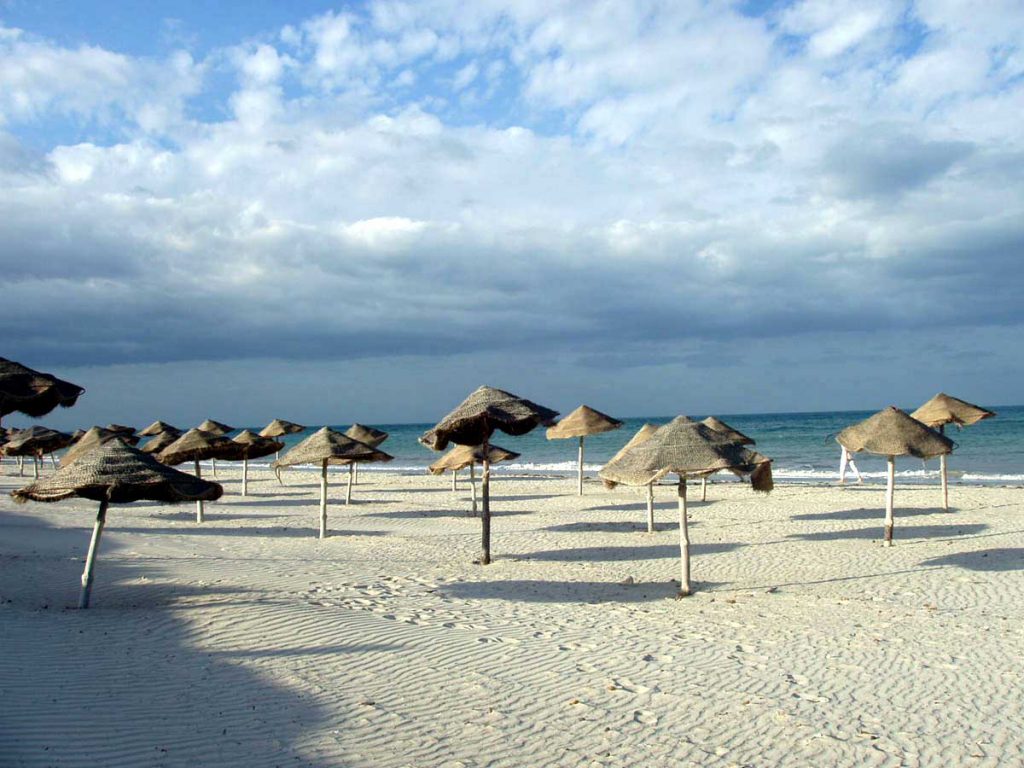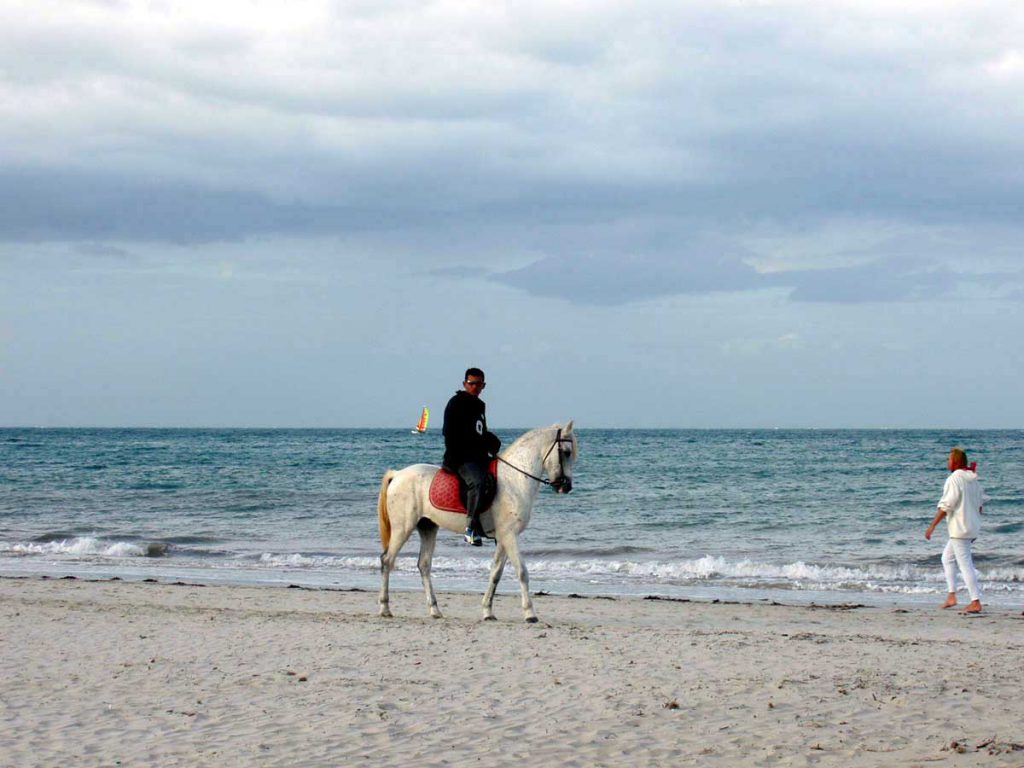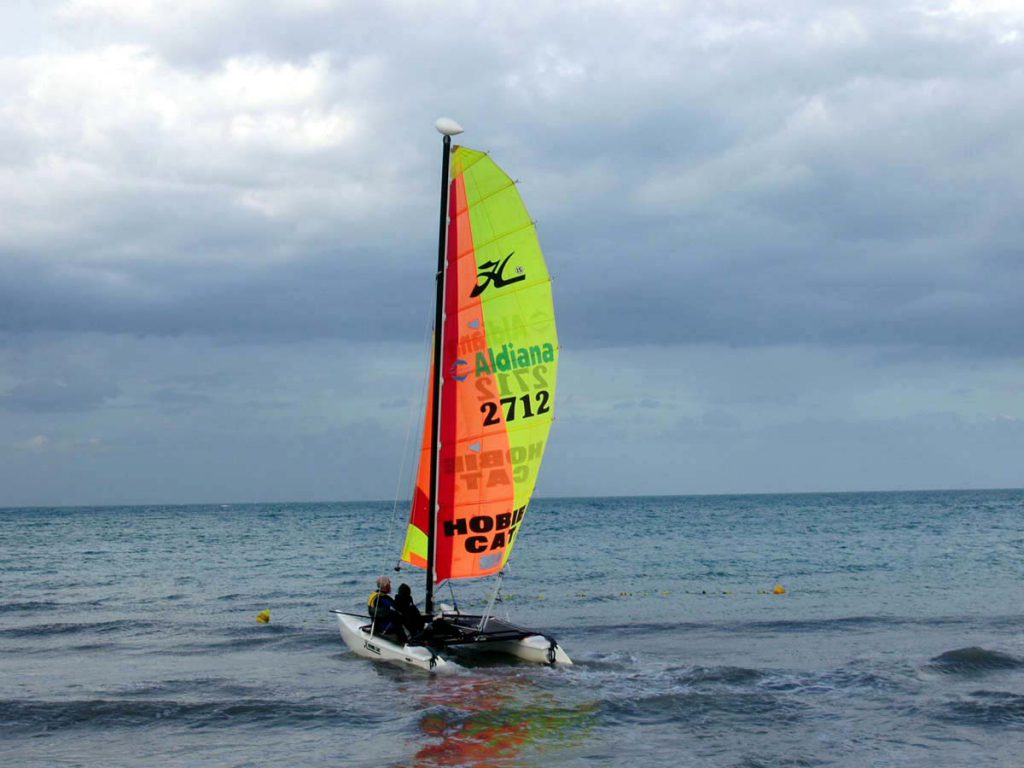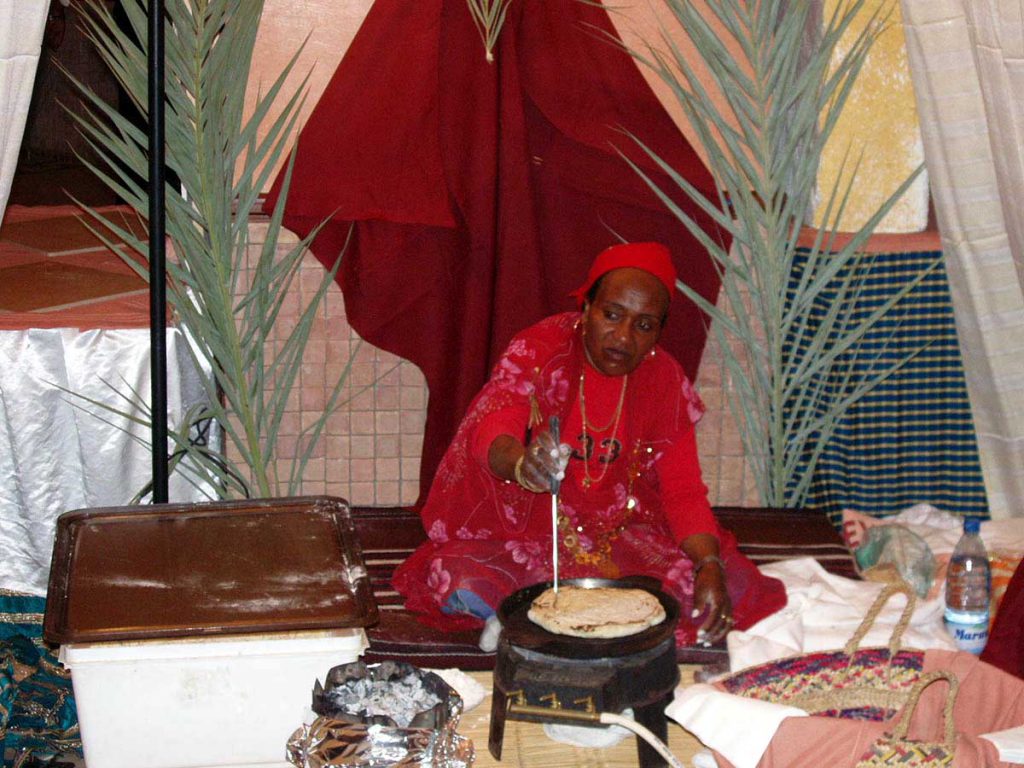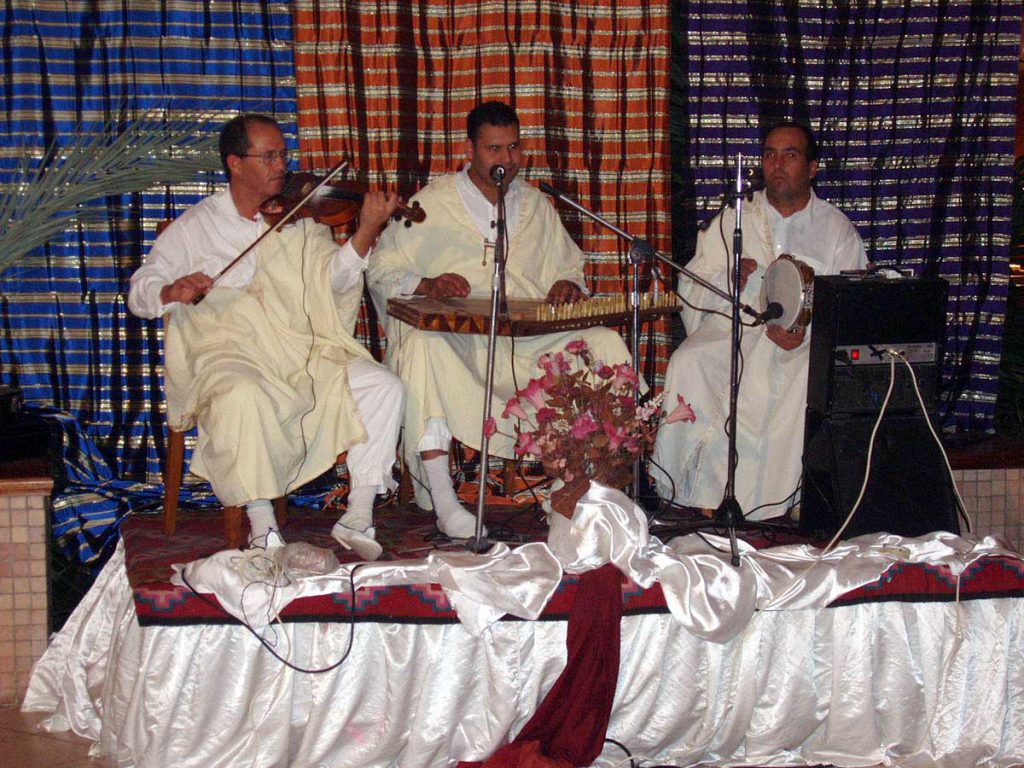Tunisia; travel information and free photos
Note of warning: Tunisia underwent a revolution in 2011, and is still in a period of political transition. A new constitution was agreed in January 2014 and a new government appointed. While foreigners are not normally a target of action, and beach resorts are generally considered safe, it is advisable to check travel advice before booking.
Tunisia is a Muslim Arab country situated on the North African Mediterranean coast. It borders on Algeria to the west and Libya to the south and east./> Tunisia was the site of Carthage, a state conquered by the Roman Empire, which withdrew in the 5th century. It was conquered by Arab Muslims in the 7th century, and later became part of the Ottoman Empire.
In the 19th century it remained officially Ottoman but increasingly independent. It was made a French protectorate in 1881. It achieved independence in 1956, and has had two presidents since.
Tunisians have been welcoming tourists in their millions for decades and the country boasts an impressive infrastructure with modern hotels, restaurants, tourist centres and of course international airports. Its golden, sandy beaches offer recreation of all kinds from swimming, sailing, windsurfing and fun water sports, to simply lazing in the Mediterranean sun. Tunisia is an exotic country full of contrasts. A trip into the Sahara will surprise and delight you. The standard of hotel comfort even in the desert is remarkable.
When to go
Tunisia has a Mediterranean climate with hot, dry summers and mild winters. The most popular time to visit is between mid-March and mid-May, although if you want to take a trip into the Sahara Desert you need to go in late autumn, because it’s too hot among the sand dunes in summer.
There are a number of Mediterranean resorts to choose from in Tunisia, and most of them have a range of accommodation. The main coastal resort areas are Tunis and around, Peninsula, Hammamet and Cap Bon, and Djerba.
What to do
Tunisia has plenty to offer the holiday maker apart from beach holidays with all the usual water sports opportunities. Golf is popular, and there are courses in most areas. There are numerous archaeological sites which can be visited, seven of them with UNESCO World Heritage Site status, one of the most important being the great Phoenician city of Carthage. A number of films have been shot in Tunisia, including Star Wars, The English Patient, The Life of Brian, Raiders of the Lost Ark, and The Little Prince, and their tourist industry is making a feature of visits to some of the locations. Local culture includes visiting markets and medinas, and shopping for Tunisian arts and crafts. Camel rides and excursions to desert oases are on offer, and there are a number of museums, some linked to archaeological sites. One type of holiday you might not expect is hiking and bird watching in Ichkeul National Park, a World Heritage-listed park set around a chain of shallow freshwater lakes and Jebel Ichkeul mountain.
Where to stay
Hammamet is one of the largest resorts, and 5-star hotels include the Laico and the Medina Solario and Thalasso. In the 4-star category there is the Iberostar Averroes and, for adults only, the Sentido Aziza Beach Golf and Spa resort. In Djerba there is the 5-star Hasdrubal Prestige Hotel and the 4-star Seabel Rym Beach. In the city of Tunis itself the Concorde Les Berges du Lac is a quiet 5-star hotel with a lake view, and a good 4-star alternative is Hotel Paris, a brand new hotel with a modern-style interior.

